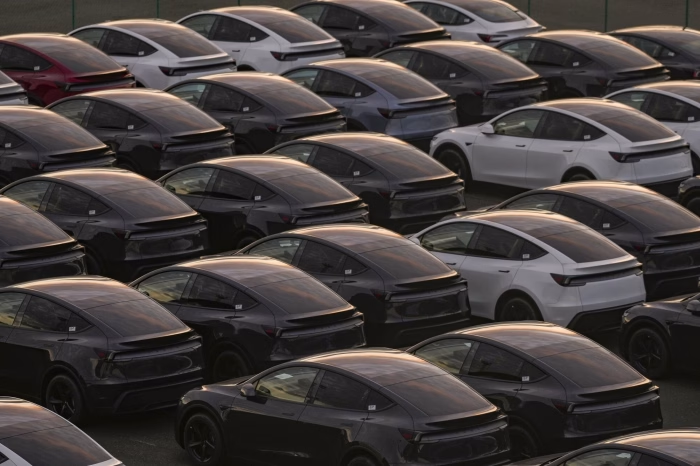In recent years, the automotive industry has seen a dramatic transformation. With over 10 million electric vehicles (EVs) sold globally in 2023, according to Bloomberg Green, the shift towards cleaner transportation is undeniable. But with so many options today—EVs, hybrids, and traditional gas cars—making an informed decision can be daunting. In this article, we’ll delve into the cost, sustainability, and practicality of these vehicles in 2024, helping you decide which is the best fit for your lifestyle and the planet.
The Cost Factor: Comparing EVs, Hybrids, and Gas Cars
When considering a new vehicle, cost naturally becomes a significant factor. Here’s how EVs, hybrids, and gas cars stack up in 2024:
Purchase Price and Incentives
- Electric Vehicles (EVs): EV prices have been steadily decreasing due to advancements in battery technology and increased production scale (Wired). In 2024, the average cost of an EV is comparable to that of a high-end gas car. Government incentives, such as tax credits and rebates, can further reduce the initial investment.
-
Hybrids: Typically priced between EVs and gas cars, hybrids offer a middle ground. They benefit from some incentives, though generally less than pure EVs.
-
Gas Cars: Traditionally the most affordable upfront, gas cars are losing their cost advantage. Rising fuel prices and maintenance costs are impacting long-term affordability.
Maintenance and Operational Costs
-
EVs: Lower maintenance costs due to fewer moving parts and no need for oil changes. Charging costs are generally lower than fuel costs, especially with home charging setups.
-
Hybrids: Maintenance costs are slightly higher than EVs due to the presence of both an engine and an electric motor but still cheaper than gas cars.
-
Gas Cars: Higher maintenance costs due to engine complexity. Fuel costs fluctuate but are generally higher than charging an EV.
Sustainability: A Green Perspective
In 2024, sustainability is more than just a buzzword; it’s a necessity for a healthier planet. Here’s how each vehicle type fares:
Carbon Emissions and Environmental Impact
- EVs: Offer the lowest carbon footprint, particularly when charged with renewable energy sources. According to the IEA, EVs can reduce emissions by up to 50% over their lifetime compared to gas cars.
-
Hybrids: Emit more CO2 than EVs but significantly less than traditional gas cars. They are a transitional technology that still offers environmental benefits.
-
Gas Cars: Highest emissions and environmental impact. As more cities implement low-emission zones, gas cars are becoming less practical in urban areas.
Battery Production and Recycling
-
EVs: Concerns about battery production impact are being addressed with advancements in recycling technologies and sustainable mining practices (Battery University).
-
Hybrids: Similar challenges to EVs regarding battery production, but on a smaller scale due to smaller battery sizes.
-
Gas Cars: Do not face battery-related sustainability issues but rely heavily on fossil fuels.
Practicality: Everyday Use and Infrastructure
While cost and sustainability are crucial, practicality can be the deciding factor for many buyers. Here’s what to consider:
Charging and Fueling Infrastructure
- EVs: Charging infrastructure is rapidly expanding, with over 1 million public chargers expected worldwide by 2025 (InsideEVs). Home charging is convenient, but public charging is essential for long-distance travel.
-
Hybrids: Flexibility to run on both electricity and gasoline, making them convenient for areas with limited charging stations.
-
Gas Cars: Established fueling infrastructure makes them convenient for any travel; however, this advantage is diminishing as EV infrastructure grows.
Range and Performance
-
EVs: Modern EVs, like those from Tesla and Rivian, boast ranges exceeding 300 miles on a single charge. Rapid advancements in battery technology promise even greater ranges in the near future.
-
Hybrids: Offer sufficient electric-only range for city driving and the backup of a gas engine for longer trips.
-
Gas Cars: No range anxiety, though their performance is increasingly matched by high-performance EVs.
Making the Choice: Tips and Recommendations
When deciding between an EV, hybrid, or gas car, consider the following:
- Analyze Your Driving Habits: If most of your driving is local, an EV or hybrid could be ideal. For frequent long-distance drives, hybrids and some gas cars might still offer convenience.
-
Consider the Infrastructure: Evaluate the availability of charging stations in your area. If installing a home charger is feasible, an EV could be highly convenient.
-
Weigh the Total Cost of Ownership: Include purchase price, incentives, fuel or charging costs, and maintenance. Tools like Edmunds’ TCO calculator can help.
-
Think Long-Term: With more cities moving towards zero-emission zones, investing in an EV could future-proof your transportation needs.
Conclusion: Which Vehicle Is Right for You?
In 2024, the choice between EVs, hybrids, and gas cars hinges on personal priorities: cost, sustainability, or convenience. EVs lead the charge in environmental impact and long-term savings, while hybrids offer a balanced approach for those not ready to fully transition. Gas cars, although still prevalent, are gradually becoming less favorable as sustainability and cost-efficiency take center stage.
As you ponder your next vehicle purchase, consider not just your current needs but also the future of transportation. With rapid advancements in technology and infrastructure, the landscape is set to change, offering exciting possibilities for eco-friendly mobility. What will you choose to drive the change?
Feel free to share your thoughts in the comments below and join the conversation on the future of sustainable transportation.

